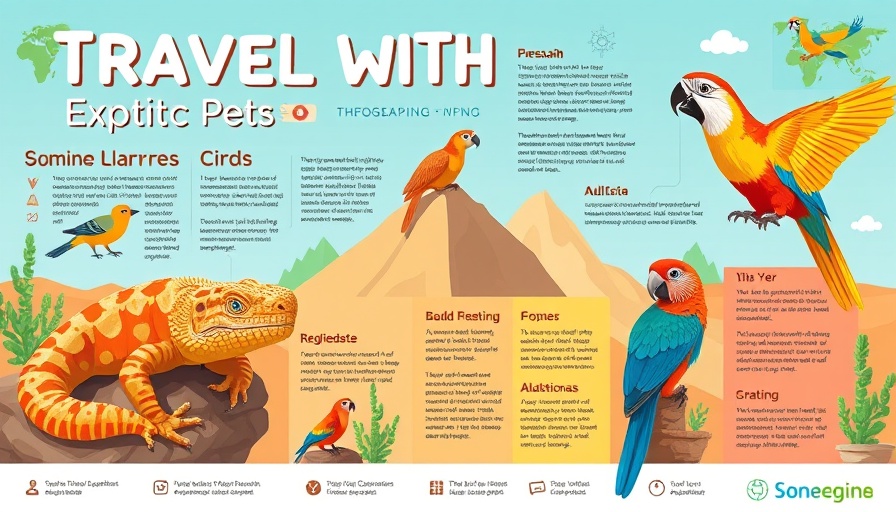
Traveling with Exotic Pets: Essential Tips for Veterinary Professionals
As the world becomes more mobile, many pet owners are keen to bring their exotic pets along for the journey. From birds to reptiles, traveling with these unique animals presents distinct challenges that require specialized knowledge and preparation. Understanding how to offer advice on this topic can be valuable for veterinary professionals looking to enhance their services and attract new clients.
Understanding the Needs of Exotic Pets
Exotic pets, unlike traditional companion animals such as cats and dogs, have specific environmental and dietary requirements that must be respected during travel. For instance, birds need a safe and stable environment that mimics their natural habitat, while reptiles require temperature controls to ensure their health. When veterinary clinics understand these needs, they can better advise clients on the essentials of traveling safely with these pets.
Preparing for Travel: The Checklist
Veterinary clinics can help clients create a comprehensive checklist for traveling with exotic pets. This list should include proper carriers, hydration sources, and food tailored to the species in question. Educating clients about these logistics not only boosts their confidence in traveling with their pets but also positions the clinic as an authority in exotic animal care, thereby increasing client loyalty and referrals.
Staying Informed: Utilizing Technology
With the rise of telemedicine and digital resources, veterinary professionals can utilize technology to assist clients even when they are on the move. Mobile apps that track exotic pet health and provide reminders for necessary check-ups or vaccinations can serve as a marketable tool for clinics. By recommending these resources, veterinary practices can streamline care and improve client engagement.
Creating an Informative Infographic
An engaging infographic that outlines the critical aspects of traveling with exotic pets can serve as a valuable marketing tool for veterinary clinics. This visual resource can be shared on social media platforms and within the clinic itself, capturing the attention of potential clients and reinforcing the knowledge base of existing customers.
Case Studies: Learning from Others
By examining case studies of successful vet clinics that specialize in exotic animals, practitioners can glean insights into best practices for enhancing client engagement. For instance, clinics that host workshops on exotic pet care and travel can foster a community among exotic pet owners, encouraging them to return for their pet care needs. Learning from industry leaders can illuminate pathways to success in this niche market.
Future Prospects: A Growing Trend
The trend of traveling with exotic pets is likely to continue growing. By staying current with this trend, veterinary clinics can adapt their services accordingly. This may include offering travel health certificates, advice on airline regulations for transporting exotic pets, and partnerships with pet-friendly accommodations.
Actionable Insights for Veterinarians
To truly succeed in catering to clients traveling with exotic pets, veterinarians should consider implementing training for their staff on the unique needs of these animals. Offering seminars or informational sessions can better prepare veterinary teams and create a knowledgeable point of contact for pet owners.
Conclusion: The Importance of Exotic Pet Expertise
By equipping themselves with insights on traveling with exotic pets, veterinary clinics can enhance their service offerings and foster a loyal community of pet owners. As more clients seek to travel with their unique companions, practitioners who proactively address these challenges will become the go-to experts in the field.
 Add Row
Add Row  Add
Add 




Write A Comment